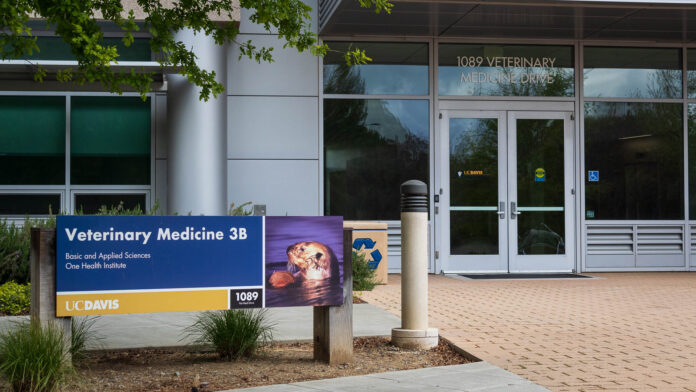As UC Davis yet again ranks as one of the best universities in the world, what qualities make it stand out?
The QS World University Rankings by Subject 2020, released on March 4, revealed that UC Davis had once again placed among the best universities in the world, at 31st nationally and 104th worldwide.
Though UC Davis dropped by four places overall since the 2019 rankings were released, some scores of individual programs increased. This year, UC Davis reclaimed the #1 spot for veterinary science, jumped from the 101-150 bracket up to the 51-100 bracket for archaeology and reached #45 in life sciences and medicine.
In order to determine where a university or program falls in relation to other institutions, QS uses six metrics: academic reputation, faculty-to-student ratio, citations per faculty, employer reputation, international faculty ratio and international student ratio.
UC Davis scored extremely well in citations per faculty, academic reputation, international faculty and international students. Due to the almost 40,000 students currently enrolled, however, UC Davis scored low on faculty-to-student ratio.
UC Davis also scored relatively low in reputation among employers. This may not, however, be UC Davis’ fault. Each of the six QS metrics are weighted differently. Twice as heavily weighted as any other metric, academic reputation has extreme pull in the final rank of any university, as it is worth 40% of the final ranking.
Though academic reputation is based in a wide variety of qualities, QS is not alone in clumping academic reputation as a single metric.
“[Higher education rankings are an] amalgam of a changing set of metrics [often] combined with a very large portion of reputation,” said UC Davis Provost Ralph Hexter. “Because of the metrics, the ranking looks like it’s very objective, but a large portion of it is just general reputation.”
The reasoning and specific methodology behind this decision leaves much up to the imagination.
“Based on our Academic Survey, it collates the expert opinions of over 94,000 individuals in the higher education space regarding teaching and research quality at the world’s universities,” the QS methodology states. “In doing so, it has grown to become the world’s largest survey of academic opinion, and, in terms of size and scope, is an unparalleled means of measuring sentiment in the academic community.”
Despite the weight placed on academic reputation, the balance between qualitative and quantitative metrics makes QS more equitable.
“When you measure something like the percentage of alumni who donate, or resources per faculty member, a small and elite private college is always going very much better than a large public institution,” Hexter said.
Though there are faults with all higher education ranking systems, they still have an influence on both the public at large and, in turn, the institutions themselves. This then quickly becomes a self-perpetuating cycle.
“You have the strength of the intellectual capacity of top-notch students and top-notch faculty,” said Helene Dillard, the dean of the College of Agricultural and Environmental Sciences. “That attracts top-notch graduate students, top-notch postdocs, so it just really feeds on itself. It’s just a really intellectually stimulating place to be.”
Similarly, since so much of the ranking is built upon reputation, once you are known as the very best in the field, it becomes hard to ruin that. This allows the UC Davis School of Veterinary Medicine the luxury of paying little attention to rankings in order to avoid clouding its goals and priorities.
“There are probably other schools that have to grapple much more with how to handle the rankings than we do,” said Tom Hinds, the director of strategic communications at the UC Davis School of Veterinary Medicine. “We’ve been doing the right things, all along, to be able to put us in this position.”
The true value in rankings is how much weight the public puts in them.
“Rankings matter to the extent that the general public pays attention to them,” Hexter said. “Pay attention to the ranking, but be aware of where the ranking is very closely aligned to your values — and, in some cases, where a ranking may have looked at one thing is that’s not something you really care about.”
Written by: Jessica Baggott — campus@theaggie.org






